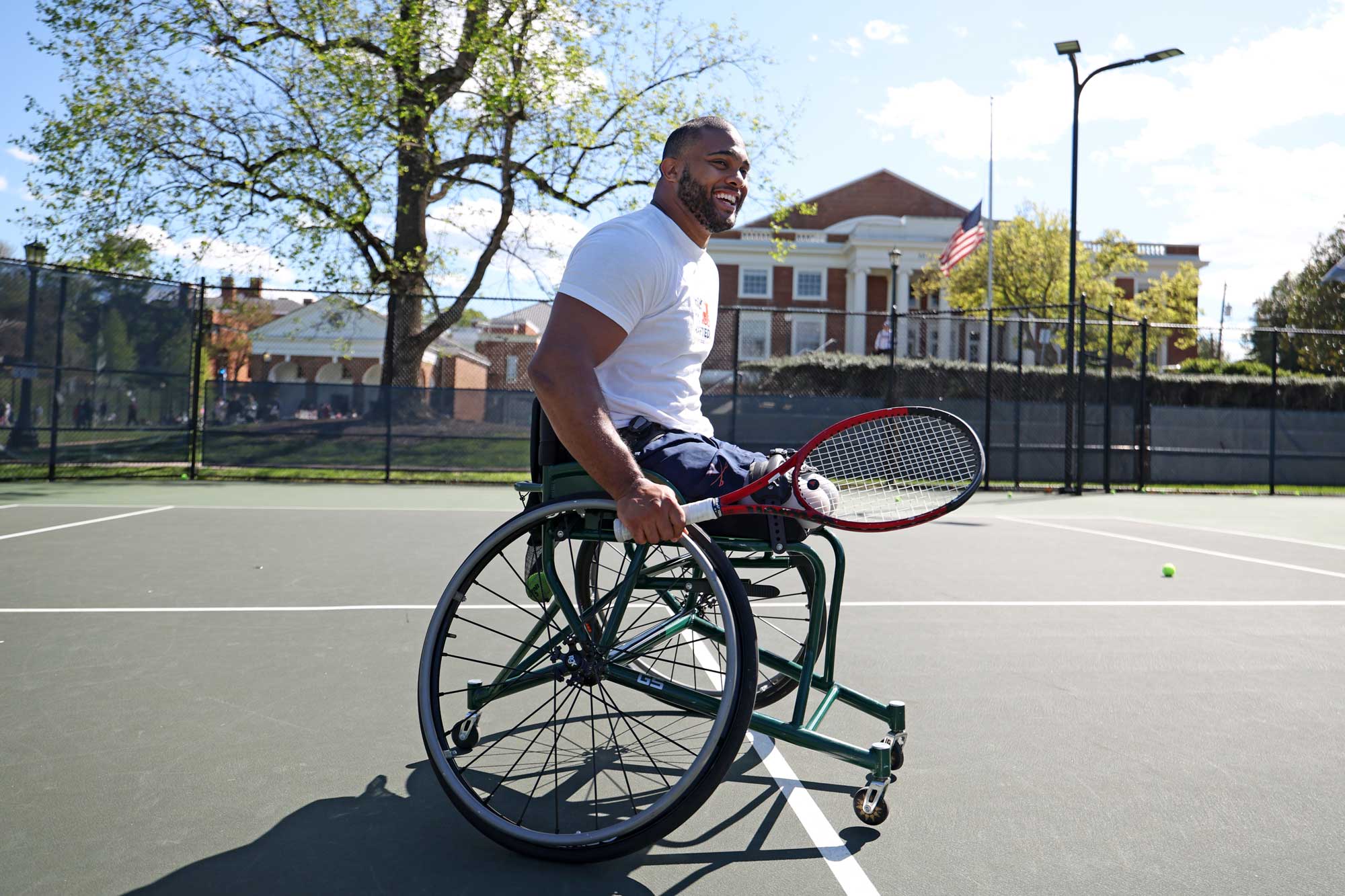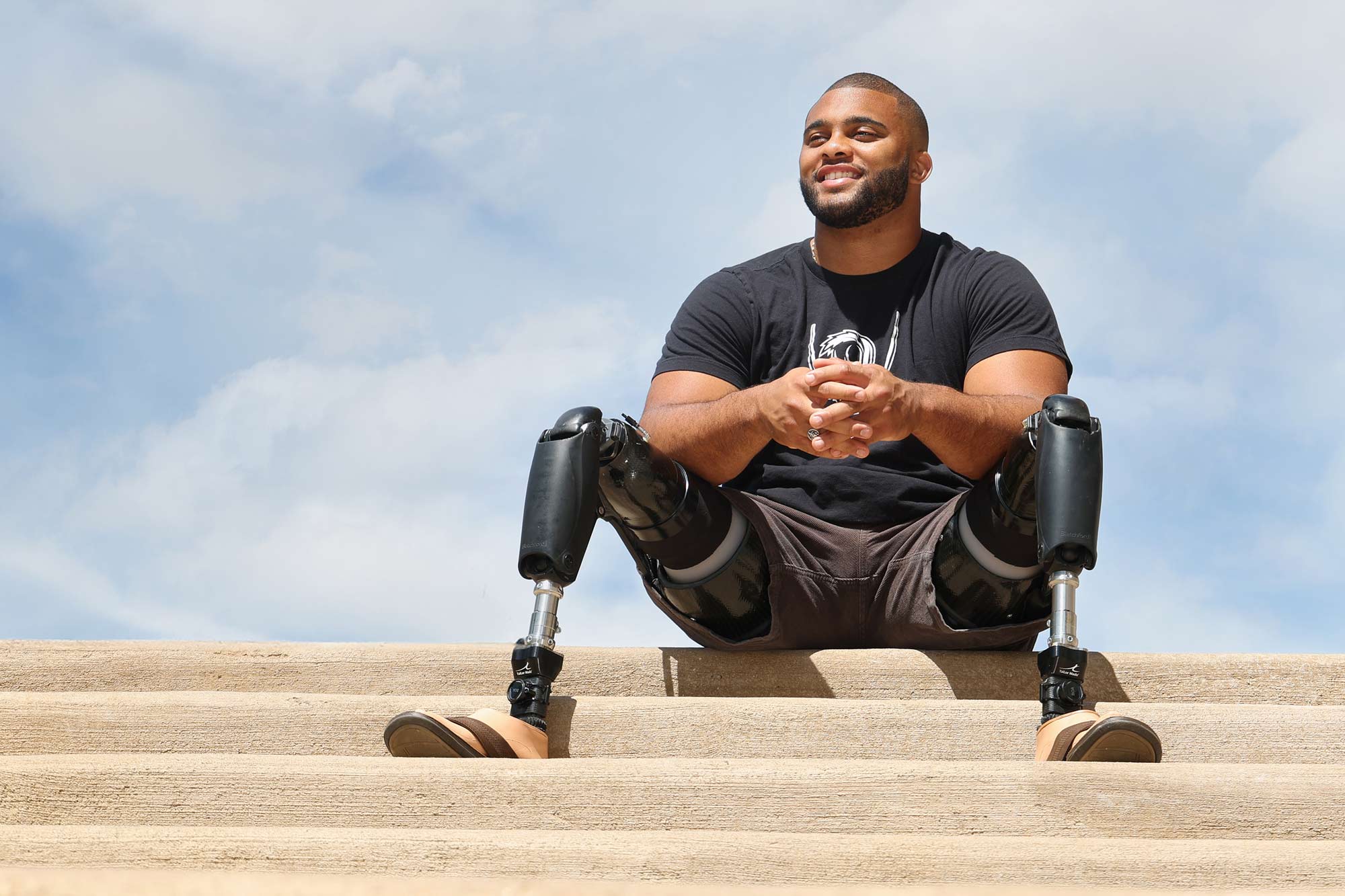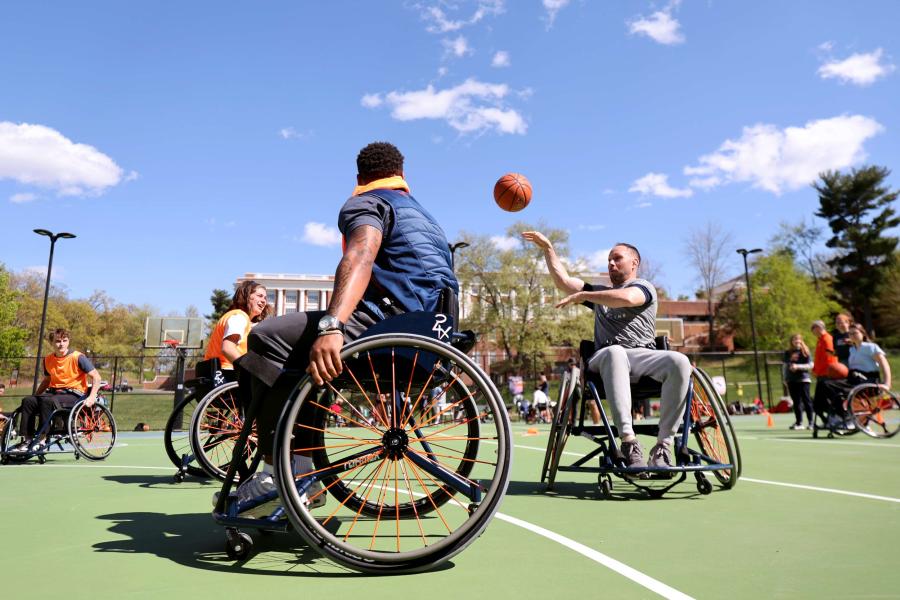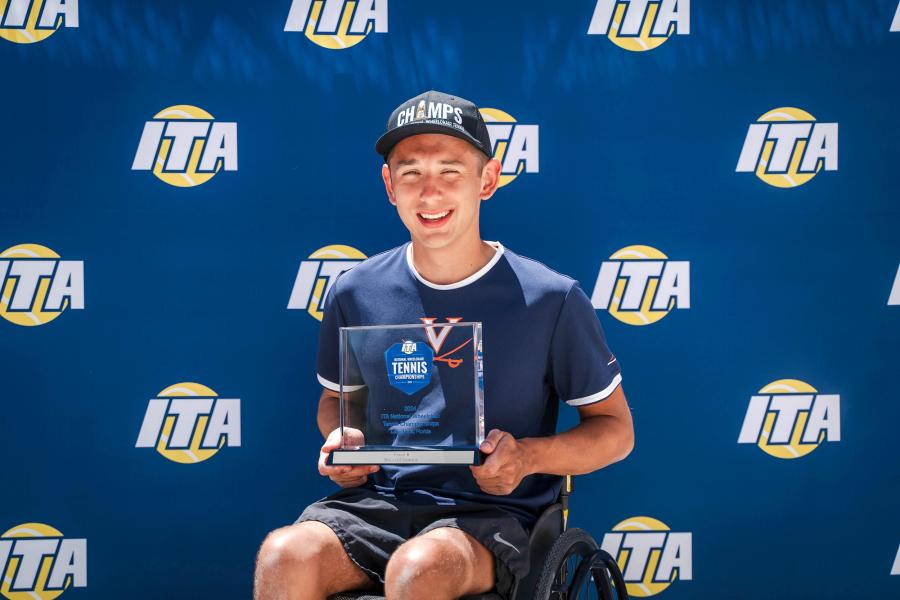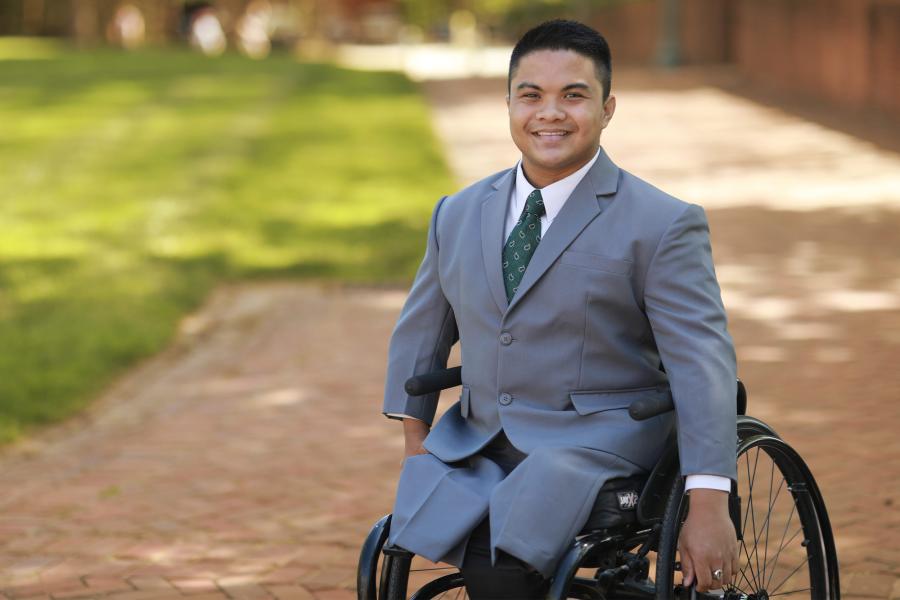Kaden Bagley was a new amputee and uncertain about life’s sudden realities until his waiting room door opened and his perspective changed. Brian Douglas, walking in on a pair of prosthetic legs, presented a barrel chest and an inviting smile.
“What’s up, man?” Douglas, an 18-year-old clinical assistant at Prosthetic and Orthotic Associates in Orlando, said to Bagley, the 15-year-old patient.
Bagley would later discover that Douglas was a student at the University of Virginia, a former captain of his high school varsity wrestling team and a guest on “The Queen Latifah Show.”
Above the accolades and brushes with fame, though, Douglas had a self-deprecating sense of humor and a down-to-earth personality that gave Bagley comfort three months after losing his right leg in a boating accident.
“I looked at Brian and saw how this wasn’t hindering him at all,” Bagley said, “and it made me realize that, yes, this (being an amputee) is a change in my life, but it’s not going to end it.”
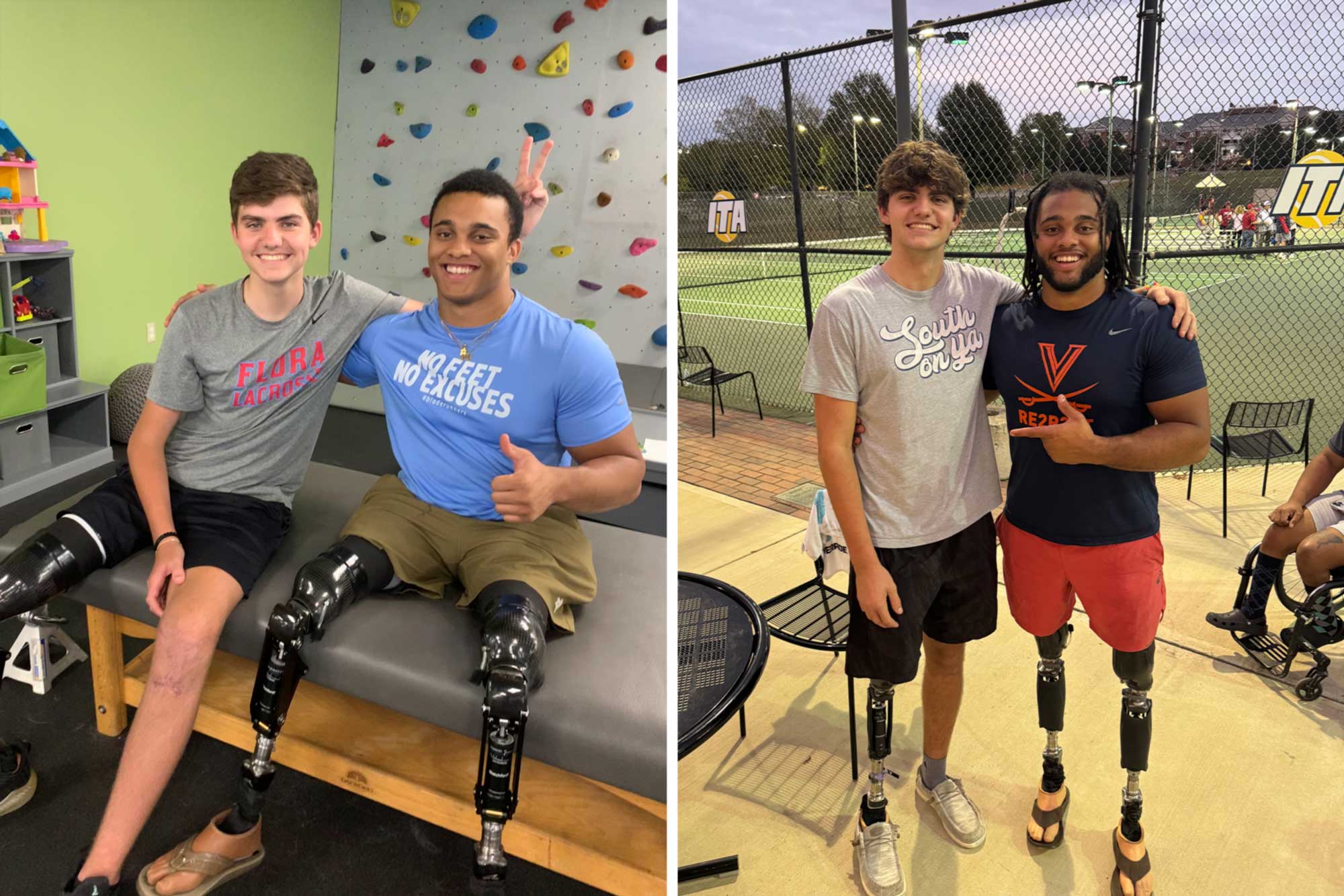
Douglas is proud of the relationships he’s built with fellow amputees like Kaden Bagley. Bagley, who lost his right leg in a boating accident, was taught how to walk on his new prosthetic leg by Douglas and is now a wheelchair basketball player at the University of Alabama. (Contributed photos)
Bagley is now a freshman at the University of Alabama, where he’s a scholarship wheelchair basketball player, and Douglas is on the brink of receiving his kinesiology degree from UVA.
Douglas, now 21, has accomplished a great deal since birth defects forced amputation of both legs at 11 months old, but his pride swells most when discussing the impact he makes on others. The president of UVA’s Student Disability Alliance has a pay-it-forward mentality with roots to his own childhood when interactions with Paralympians – like sprinter Blake Leeper on “The Queen Latifah Show” – helped him visualize progress.
“I just want to create opportunities for other people with disabilities to have success in the way that I have,” Douglas said, “to feel that feeling of invincibility, to alleviate that feeling of alienation that disability that can sometimes bring to us.”
In elementary school in Florida, Douglas used to hide behind a friend’s towel at swim lessons to avoid further ridicule from classmates who spotted him outside the pool without legs. Isolation can take its toll on anyone, especially amputees. “It becomes unavoidable,” Douglas said.
But once the shield is let down, there’s freedom to thrive. Douglas, an All-America wheelchair tennis player and a two-time para-swimming national champion, has taken several figurative steps to prove this.
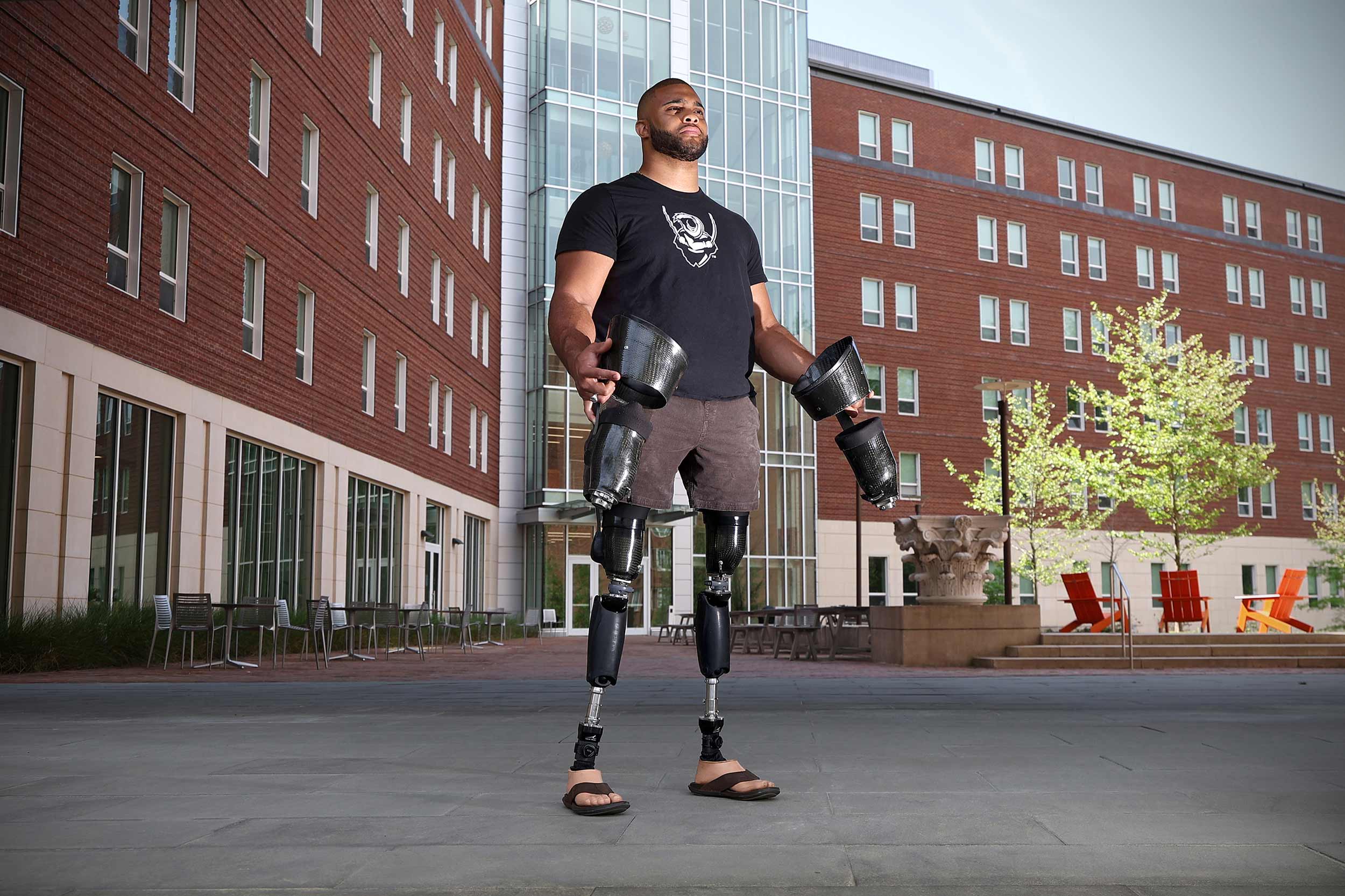






.jpg)
